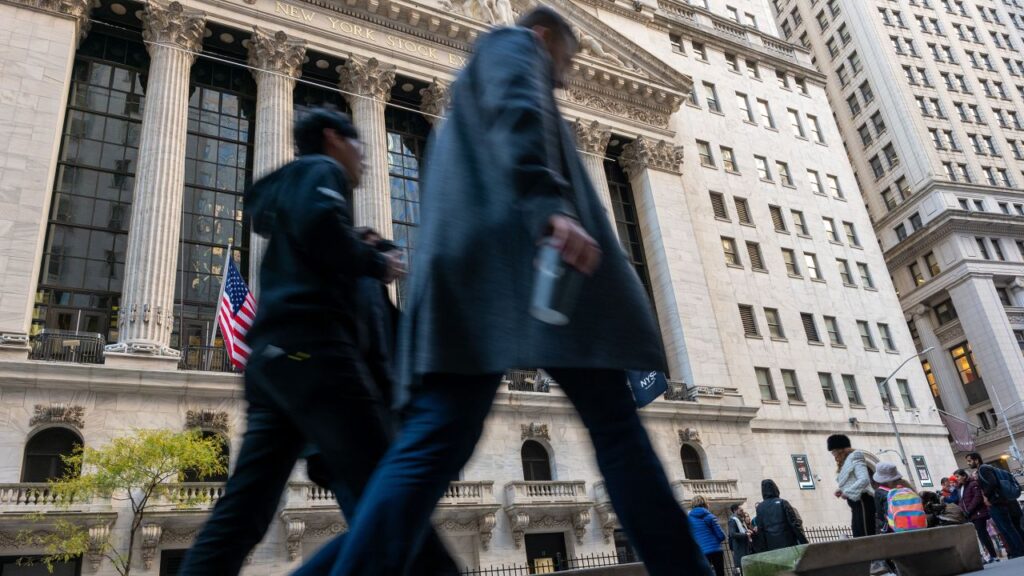The war in Ukraine has tended to increase uncertainty regarding inflation and growth prospects. When and with what consequences this war will end is pure speculation, but capital markets are expected to build a certain immunity to the headline risks in the coming weeks. The medium- to long-term consequences, on the other hand, could be significant. It is possible that we are at the beginning of a new bloc formation or a new Cold War. This would put a significant damper on globalization and further fuel higher structural inflation.
US equities tumbled on Wednesday in the wake of Tuesday’s US midterm elections, which have failed to provide clarity on the political front. Meanwhile, volatility in the cryptocurrency markets continued as Binance Holdings ditched its plans of acquiring FT.com, which has experienced some liquidity issues. The Dow Jones Industrial Average tumbled 2.0%, the S&P 500 Index lost 2.1%, while the Nasdaq Composite plunged 2.5%. Elsewhere, European equities finished mixed in a cautious midweek session, with the Euro Stoxx Index down 0.3%. Travel and leisure shares were the worst performers, falling over 2%, while utilities and healthcare companies clutched some gains.
Summary
- Asian equity markets were tense on Thursday with the Hang Seng Index leading the drop with a 2.2% fall. In mainland China, the Shanghai Composite was down almost 1%, similar to the Nikkei 225 and the Kospi. In Australia, the ASX 200 managed to ease the losses to around 0.5%.
- European shares are on track to follow their global peers lower while US futures were trading marginally higher overnight.
- Oil prices were lower this morning after losing more than 7% in the past three sessions, pressured by a larger-than-expected build in US crude inventories and China’s ongoing battle against resurgent Covid outbreaks. Official data showed that US crude stockpiles rose by 3.93 million barrels last week, higher than forecasts for a 1.36-million-barrel build.
- The struggle for control of the US Senate boiled down to three races, with each party needing to win two of those states to secure a majority, as the Republicans did not achieve the midterm election wave they expected. Overall, US President Joe Biden will likely be able to claim the best midterm performance for an incumbent president’s party in 20 years, though it still means his agenda will be blocked with Republicans poised to control the House of Representatives.
- Meta Platforms confirmed that it will reduce its workforce by about 13%, letting more than 11,000 employees go, and cutting its discretionary spending in its attempts of becoming a leaner and more efficient company, while extending its hiring freeze through Q1. These changes were deemed necessary in view of its revenue outlook now being lower than expected at the beginning of the year.
- Deutsche Telekom this morning nudged up its full-year guidance as the US dollar’s appreciation helped buoy third-quarter profit and its T-Mobile USA business added customers. The company reported a rise in Q3 adjusted net profit of 80% to €2.4 billion and said it planned to increase its dividend to €0.70 per share from €0.64 in 2021. In organic terms, it expected full-year adjusted EBITDA to come in at more than €37.0 billion, up from previous guidance of around €37.0 billion.
- Allianz on Wednesday posted a better-than-expected 17% rise in third-quarter net profit and confirmed its full-year outlook. Net profit attributable to shareholders was €2.46 billion compared to €2.11 billion a year earlier and ahead of the consensus forecast of €2.32 billion.
- Shares in Commerzbank yesterday fell by 7% after it reported heavy third-quarter losses on its Polish business and signalled a challenging market environment. Net profit at Germany’s second-largest lender fell 52% compared to last year to €195 million, although it was above consensus estimates of €116 million. Revenue trailed last year’s figure by 5.9% to €1.89 billion.
- Sam Bankman-Fried, the CEO of crypto exchange FTX, told investors on Wednesday that without a cash injection of at least $4 billion, his company would need to file for bankruptcy. FTX is attempting to raise rescue financing in the form of debt, equity, or a combination of the two. The situation may turn for the worse after the Justice Department was reported to be looking into the turmoil and the liquidity crisis that has pushed FTX to the brink.
- US inflation probably moderated just slightly in October, data due Thursday is expected to show, and yet another above-forecast reading may dash expectations for the Fed to downshift from steep interest rate hikes. In the meantime, Biden said he is optimistic the US is not nearing a recession but said that his actions to lower inflation would need more time to take effect.





